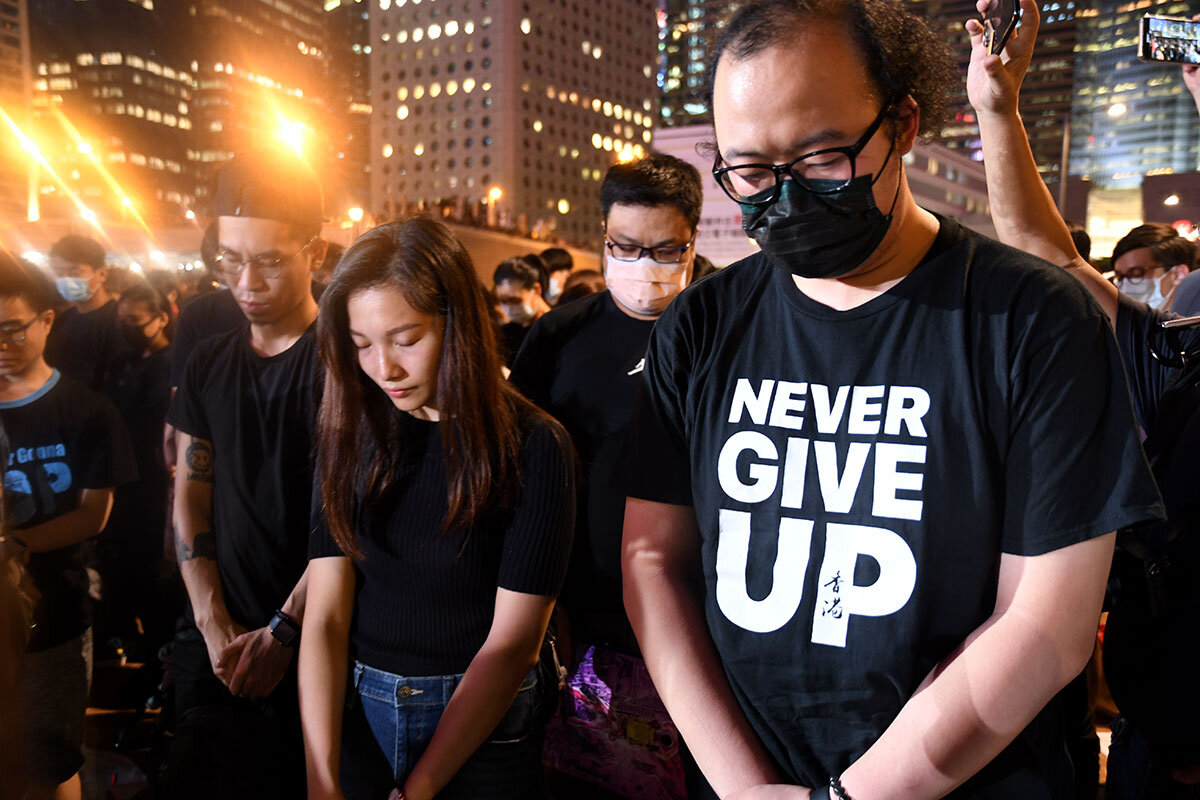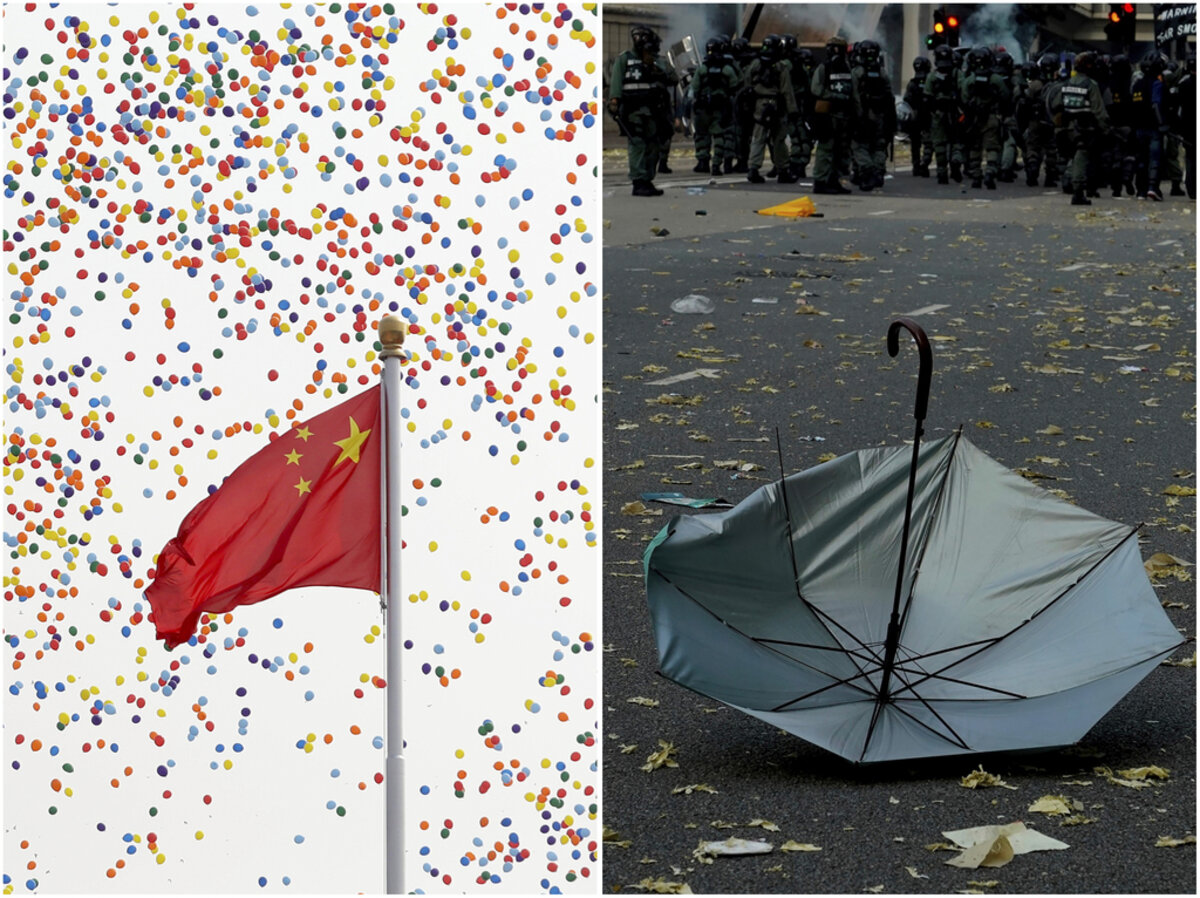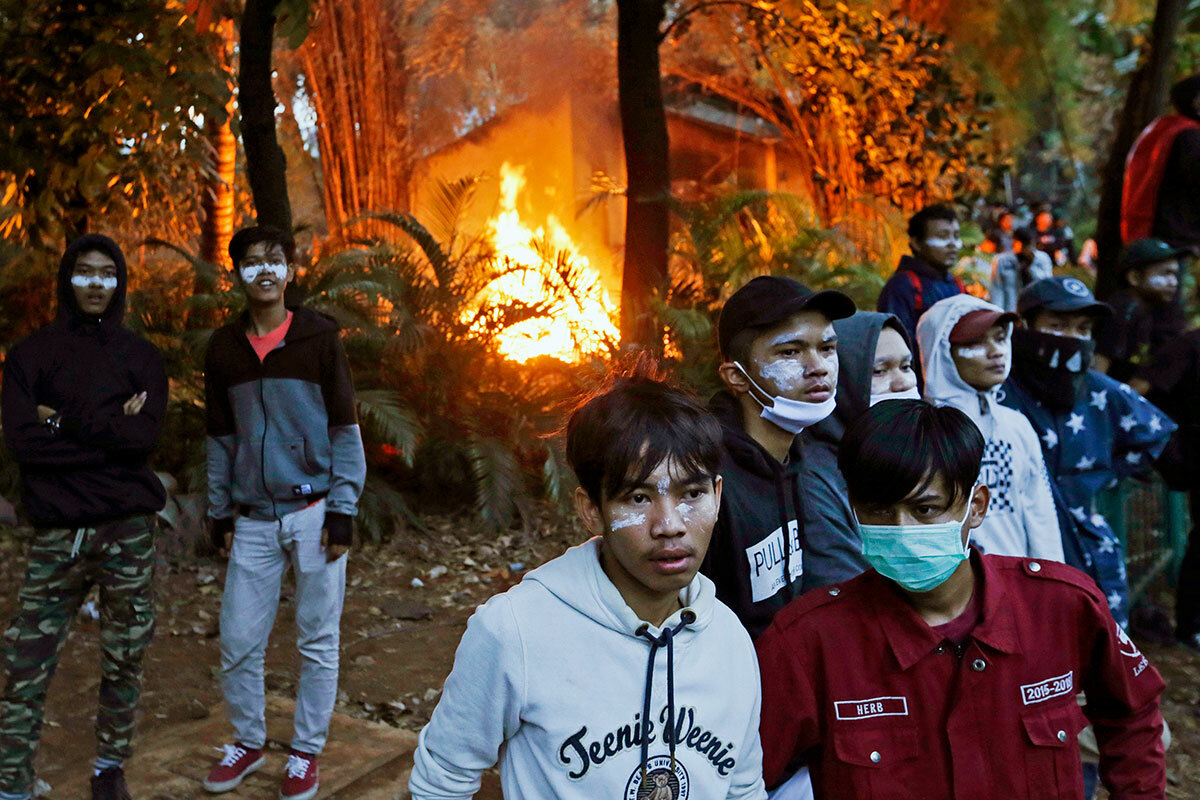Our reporter in Hong Kong looks at how the deadline for a full handover to China in 28 years is shaping the pro-democracy protests today. Protesters ask, if not now, when?
Monitor Daily Podcast
- Follow us:
- Apple Podcasts
- Spotify
- RSS Feed
- Download
 David Clark Scott
David Clark Scott
In today’s issue, our five hand-picked stories explore what’s driving change in Hong Kong, President Trump’s influence over his party, how gun control politics shifted in one state, an all-natural answer to flooding in Houston, and newfound independence on the high seas.
First, California is famous for its earthquakes. On Monday, we saw the first cracks of a seismic shift in college sports: fair pay for athletes.
Gov. Gavin Newsom signed a law that allows California college athletes to accept outside endorsement money and hire agents starting in 2023. It means a football player can earn royalties from a video game, or a golfer can collect a check for wearing a Nike cap, or a soccer player can get paid for giving lessons.
The NCAA – the governing body for college sports – decries this law as a violation of the principle that students should earn a degree, not money. But that ideal ignores the fact that college sports, especially football and basketball, are now a multibillion-dollar industry with colleges, coaches, and broadcasters reaping huge sums. Yes, college jocks often get a “free” education for playing, but that contract hasn’t changed as revenues have soared.
The NCAA may try to prevent schools in other states from playing against ones in California. But the state law has a clever three-year delay, effectively making it a national catalyst for fair pay. At least seven states are already moving to pass similar legislation. No wonder, California now has a college recruiting edge.
As California state Sen. Nancy Skinner said: “By restoring student-athletes’ rights, we’ve sent a clear message to the NCAA, our colleges and the entire sports industry: Equity must be the overriding value.”











